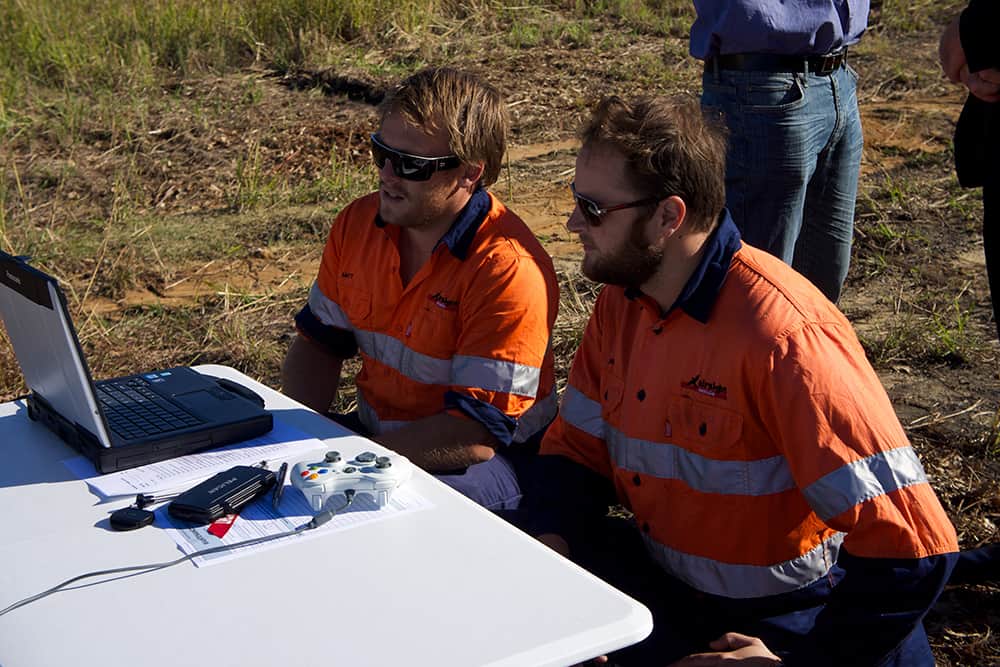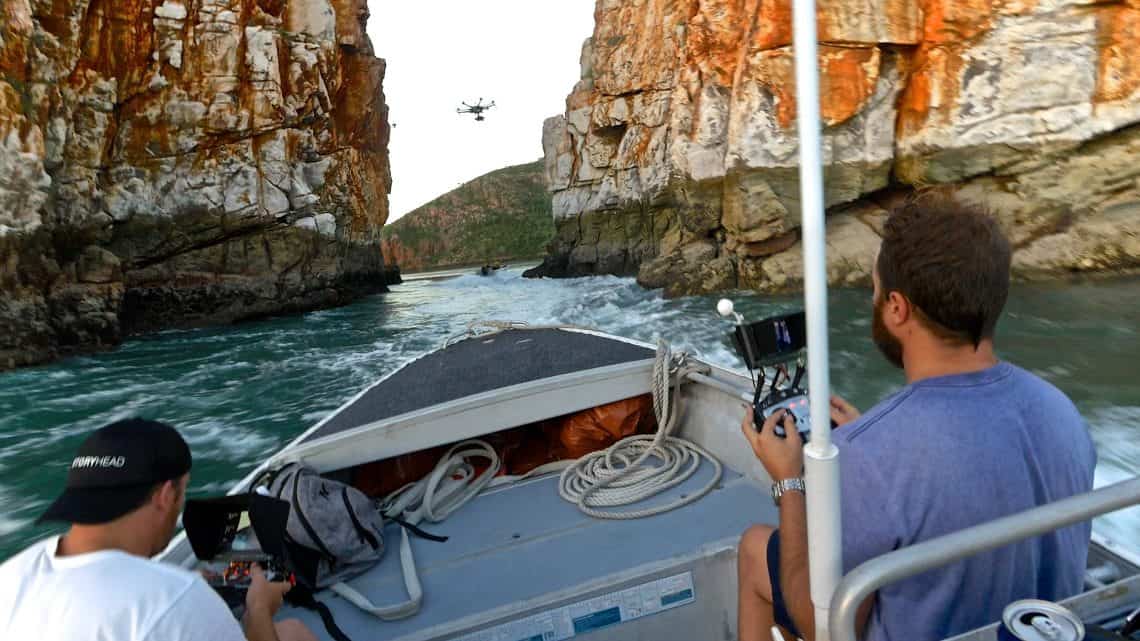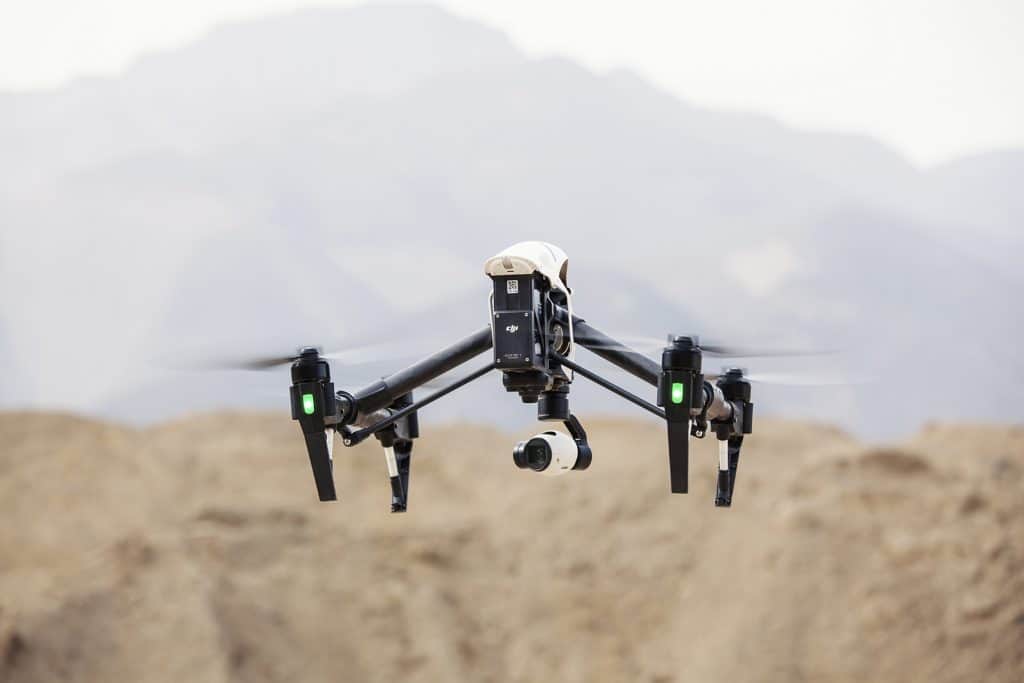Years ago, before the sophistication of the Lithium Polymer (Li-Po) battery and other tech wonders UAV’s had limited scope for professional work. Reliability, flight times, camera quality and weights as well as exorbitant entry costs all plagued the UAV industry. This made it difficult, potentially hazardous and costly to develop good quality data for clients.
Today however, we are plagued by a problem almost the reverse of this. Today, entering the industry can be achieved by almost anyone with the will and the dollars. The technology has improved enormously and even consumer level gear can, if used correctly, produce quality results. Sadly, many who enter the industry will be disappointed by the outcome of their investment in training and technology. Many who try to enter the industry don’t fully understand the level of skill required, the dedication to making a business work, the regulation and the competition that exists.
There are some key elements to professional UAV that many people don’t consider:
1. It’s not all about flying
Just because you enjoy flying in parks on the weekend isn’t enough of a reason to enter the industry. Clients don’t pay you to fly, they pay you to generate data. That might be a superb looking real estate photo, a movie shoot, maybe an aerial survey, hell we had one guy who wanted us to find his lost horse! Whatever the job you’re not being paid to fly, no amount of fancy techniques will win you work. You need to be reliable, professional, safe and you need to deliver a quality product on time, everytime.


The professional use of Unmanned Aerial Vehicles is about about capturing data effectively – Image courtesy of Airsight Australia Pty Ltd
2. This isn’t the next mining boom
Everyone remembers the stories a few years back of kids fresh out of school earning $120,000 a year driving trucks in the mines. This isn’t like that. Sure the industry is on the move, new uses for drones are found all the time and there are many more yet to come. But no-one is waiting outside your RPAS course on graduation day with an employment contract in their hand. If you want to work in the industry you need to want it more than the guy or girl behind you. You need to think like a businessman. Do you offer the best quality product each and every time? Are you looking for new opportunities? Are you developing your skills and knowledge?
3. Don’t forget the paperwork
When you fly an Unmanned Aerial Vehicle you aren’t operating in private property or a council park, the second it leaves the ground you are in airspace. You are in the domain of the aeroplane and helicopter, you work in Aviation and there are very strict rules which apply to keep the air safe. this space is controlled by the Civil Aviation Safety Authority (CASA) and if you are afraid of paperwork you better find another career.
On top of Controllers Certificate, Operator’s Certificate (More on this in another post) and insurance you have flight exemptions, maintenance manuals, flight logs and much more. Every step of the way you need to demonstrate that you are managing your business as safely as possible.


Flight planning, safe work practices, effective data capture and delivery to the client all forms part of the UAV pilots role – image courtesy of Airsight Australia Pty Ltd
4. It costs more than you think
What does it cost to start in the industry? Hey you’ve already got a Phantom 3, you just need a training ticket and license from CASA right? Many people don’t fully think through the costs involved in entering the industry. Consider your RPAS Training (Or Certificate III Aviation in our case), Operator’s Certificate, Public Liability Insurance, Marketing costs, travel costs and flight exemptions. We have potential students approach us without proper consideration for the true costs of setup, realistically we are talking well over $15,000 for a fairly simple setup in photography. (To many this is excessive and well beyond what they expect but if you truly look at the cost of setting up any business it’s pretty minimal, I have a friend that just went into the lawn mowing business who is more out of pocket than this and he isn’t charging what we do per hour.)
5. It ain’t all bad
OK, by now it sounds like we are trying to talk you out of it, far from it. Being a UAV Pilot is hugely rewarding, you get to work outdoors a lot, there is plenty of variety and travel, the technology is changing and new markets are emerging. On top of that pretty much all of your friends will think you have the coolest job in the world. It has the potential to be a great career for people with the right mindset and the right training.


When its good, its great! 2 of our pilots spending 10 days in the Kimberley’s preparing a promotional video. – Image courtesy of Airsight Australia Pty Ltd.
Our advice is not to skimp on the training part, good quality, accredited training has the ability to set you apart from the rest. Paying for a qualification and taking the time to learn properly rather than rushing in will help you stand out in the market. Proper training will make a much bigger difference and also help build positive habits of professionalism. Whether you are planning to operate a DJI S900, DJI S100, Inspire 1, Phantom 3 or something else quality training will put you in good stead for this fast growing industry.
If you’ve made it through this far and you still want to enter the industry then give us a call on 1300 893 340 or email [email protected]. We’ll happily walk you through the process and discuss why our training solution is about much more than getting you just your licence.
Ashley Cox is General Manager for UAVAir, he is a university qualified career counsellor and occasionally gets out to fly.
